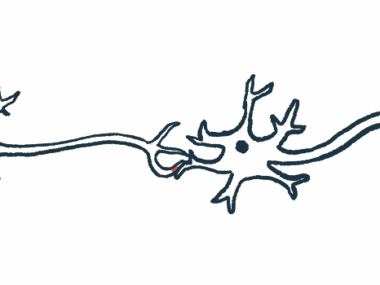Approved Cancer Medication Reduced Epileptic Seizures in Animal Models
Written by |

An approved cancer medication was able to reduce average daily seizures by 60 percent in zebrafish and mice with epilepsy.
That finding was in an article, “A novel metabolism-based phenotypic drug discovery platform in zebrafish uncovers HDACs 1 and 3 as a potential combined anti-seizure drug target,” that was published in the journal Brain.
University of Calgary researchers searched for medication to treat children with epilepsy who do not respond to existing therapies, including children with Dravet syndrome who often do not respond well to seizure medications.
They began by investigating the ketogenic diet, a high-fat, low-carbohydrate treatment for patients who fail to respond to anti-seizure medications. This diet originally was designed in the 1920s to mirror the biochemical changes associated with fasting.
Although the underlying mechanisms of ketogenic diet action are not clear, its clinical effectiveness has been demonstrated along with its link to alterations in bioenergetics.
“The ketogenic diet is thought to work by changing the way cells produce energy, and for reasons that are not fully understood, this shift in energy production calms the excitability within epileptic brains,” said Jong Rho, MD, a pediatric neurologist and a member of the Alberta Children’s Hospital Research Institute. “We wondered if we could exploit this principle to find different drugs that help decrease seizure activity.”
The team devised a metabolism-based drug discovery platform modeled on the mechanisms and therapeutic effectiveness of the ketogenic diet. This screening measures energy production in diseased brains to understand which medications can modify it.
First, medications approved for the treatment of other conditions were tested for their ability to reduce seizures in in epileptic mice and zebrafish, a tropical fish genetically similar to humans whose brains develop seizures in a similar manner.
After screening 870 compounds, the team identified vorinostat (Zolinza), an approved cancer drug, as a potent anti-seizure drug, reducing average daily seizures in zebrafish and mouse models by 60 percent.
Two other compounds, broad histone deacetylase (HDAC) 1 and 3, which are naturally targeted by vorinostat, also were found to be potential targets for future drug screening.
A clinical trial testing Zolinza in children who have failed to respond to standard anti-seizure medications will begin this spring at the Alberta Children’s Hospital.
“For many years, the focus has been on finding drugs that block channels and receptors in the brain that affect the way signals are made between cells. We wanted to find new drugs for the epileptic children who don’t respond to current medications, and this required a wholly different approach,” one of the study’s main authors, Deborah Kurrasch, PhD, said in a press release.
“It’s encouraging how quickly we can move from the lab to a potential treatment for patients,” added Kurrasch. “This drug testing method that we’ve developed for epilepsy has so many more applications. We can now start looking at effective drug treatment for other disorders, including autism.”





